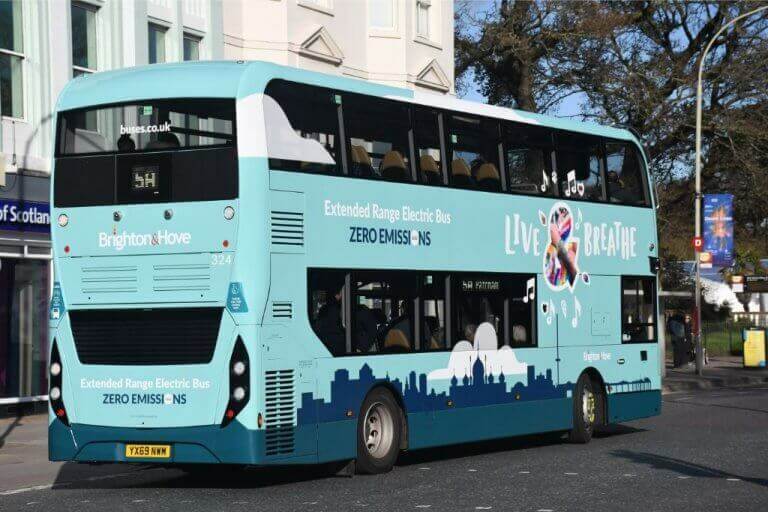Despite the challenges of the pandemic, Brighton & Hove (B&H) says it has not taken its eye off the ball when it comes to air quality, climate change and emissions, investing £10 million in ultra-low and zero emissions buses in the last year. By December, B&H expects to have 24 new extended range electric buses producing zero emissions in the city’s Ultra Low Emissions Zone, taking the total up to 54, and hydrogen fuel cell buses are moving closer to reality on sister company Metrobus’ Fastway services between Gatwick Airport, Crawley and Horley, with the company securing partnership funding for 20 hydrogen buses.
Brighton & Hove Buses’ Managing Director Martin Harris said: “Public transport remains critical to environmental sustainability, economic recovery and linking communities. We have carried on running services throughout the pandemic connecting key workers, customers and communities safely. I am immensely proud of every one of our 1,554 colleagues for showing such resilience and spirit and keeping these critical services going for everybody.
“Our Sustainability Report reflects this effort, as well as our commitment to providing cleaner, greener and safer journeys to passengers. We’ve kept building our relationships with local councils and community groups, listening to our customers and supporting our colleagues and our values and our mission remains the same.”
The report also highlights the bus company’s work with local groups like Brighton & Hove Black History Group, Little Green Pig children’s creative writing project and the Brighton & Hove Upstanders Network on campaigns and events, including an anti-hate crime campaign. Over the past year, the company said it has helped 142 local groups with grants, donating tickets and fundraising in depots, and has invested £120,500 in communities, reaching 762,622 people.
The report also highlighted the effects of Covid-19, and noted the increasing contactless payments: B&H says that fewer than 6% of passengers now pay with cash when they board the bus.


